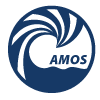
The Fifth Assessment Report of the Intergovernmental Panel on Climate Change (IPCC) “Climate Change 2013: The Physical Science Basis” was released at the end of September. This confirmed with greater confidence the key conclusions on climate change; that warming of the climate system is unequivocal, most of the observed global warming since 1950 is very likely due to the anthropogenic emissions of greenhouse gases, and that continued emissions will lead to substantial further global warming. This talk will review the science of climate change, including regional impacts in Australia. It will also describe the global emission reductions that are needed to meet the globally agreed target of limiting global warming to less than two degrees above pre-industrial levels. In October, the Climate Change Authority released its draft Targets and Progress Review, assessing progress in Australia in terms of greenhouse gas emissions since 1990 and recommending targets for reductions in Australian greenhouse gas emissions consistent with the two degree warming target. The key recommendations from the CCA will be discussed, as well as some of the opportunities that are readily available for reducing greenhouse gas emissions in Australia.
SPECIAL GUEST SPEAKER AND PANELIST
Prof David Karoly – Professor of Atmospheric Science in the School of Earth Sciences and the ARC Centre of Excellence for Climate System Science at the University of Melbourne. He is an internationally recognised expert in climate change and climate variability, including greenhouse climate change, stratospheric ozone depletion and interannual climate variations due to El Niño-Southern Oscillation. He was heavily involved in preparation of the Fourth Assessment Report of the Intergovernmental Panel on Climate Change (IPCC) released in 2007, in several different roles. Professor Karoly is a member of the new Climate Change Authority in Australia and the Wentworth Group of Concerned Scientists.
MASTER OF CEREMONIES
Dr Tony Press – CEO of the Antarctic Climate and Ecosystems Cooperative Research Centre based at the University of Tasmania. From 1998-2008 he was the Director of the Australian Antarctic Division. Tony chaired the Antarctic Treaty’s Committee for Environmental Protection from 2002 to 2006. He was Australia’s representative to the CEP and Alternative Representative to the Antarctic Treaty Consultative Meetings from 1999 to 2008 and Australia’s Commissioner for the Convention on the Conservation of Antarctic Marine Living Resources from 1998 to 2008.
PANEL
Dr Susan Wijffels – Recognised for her international and national leadership of the Global Ocean Observing System and is regarded as an expert in Indonesian Throughflow and its significance in global heat and freshwater budgets and quantifying large-scale multi-decadal ocean change and global salinity changes. She currently leads CSIRO’s Dynamic Oceans Theme, and is co Chair of International Argo Science Team. She is also a member of IOC/UNESCO International Steering Committee for the Global Ocean Observing System, Australian Antarctic Science Advisory Committee and the Pacific Research Centre Science Advisory Committee. Dr Wijffels is a recipient of the Australian Meteorological and Oceanographic Society’s Priestly Medal as well as the Australian Academy of Sciences’ Dorothy Hill Award.
Prof Tom Trull – Leader of the Antarctic Climate and Ecosystems Carbon Program and the Integrated Marine Observing System Southern Ocean Time Series Facility. His research examines biogeochemical processes that contribute to carbon cycling in the Southern Ocean including work on iron fertilisation and ocean acidification, via the use of nutrient elements and stable isotopes as tracers of trophodynamics, and the implementation of automated sensors and samplers on moorings and autonomous profiling floats. He advises the Australian delegation to the International Maritime Organisation on the development of regulatory frameworks for marine geo-engineering.
Prof Ian Allison – Honorary Research Professor at the University of Tasmania, and an Associate of the Antarctic Climate and Ecosystems CRC. He has studied ice and climate for over 45 years and participated in or led 25 research expeditions to the Antarctic. Ian has published over 130 peer-reviewed papers on topics including ice shelf-ocean interaction; Antarctic weather and climate; sea ice; and the mass budget of the Antarctic ice sheet. He was co-Chair of the ICSU/WMO Joint Committee that organised and coordinated the International Polar Year 2007-2008, and has been a Lead Author of both the Fourth and Fifth Assessment Reports of the IPCC.
KINDLY SUPPORTED BY:
University of Tasmania (UTAS)
Institute for Marine and Antarctic Studies (IMAS)
ARC Centre for Excellence for Climate System Science
Bureau of Meteorology Antarctic Climate and Ecosystems Cooperative Research Centre (ACE-CRC)
Antarctic Tasmania Science Research Development (ATSRD)
CSIRO
Australian Antarctic Division (AAD)
Inspiring Australia
Australian Institute of Physics (AIP)
Tasmanian Climate Change Office
Click here to register
